The Complete Guide to Brand Mentions: Build Authority and Visibility in AI Search

Traditional SEO has long focused on backlinks because they are one of the strongest signals Google uses to rank websites.
But as AI search changes how information is surfaced, brand mentions have become just as important for visibility.
Whether it’s a mention of your company name in a product roundup, a Reddit thread, or an industry blog, these unlinked references help AI tools understand who you are, what you’re known for, and whether your brand can be trusted as a source.
In this guide, we’ll break down everything you need to know about brand mentions, including
- What brand mentions are (and what they’re not)
- Why brand mentions influence SEO and AI search visibility
- Which types of mentions matter most
- How to build and track them
- And how they fit into a broader Generative Engine Optimization (GEO) strategy
What We'll Cover
What Are Brand Mentions?

Search engines and AI systems no longer solely look for a hyperlink to associate your brand with a topic. What matters now is how often you’re mentioned, where those mentions appear, and how relevant they are to your industry or niche.
Brand mentions refer to any reference to your business, product, or name on external websites, whether or not there’s a link attached. These could be direct (e.g., “MADX”) or contextual (e.g., “a leading SEO agency based in London”) and can appear in:
- Blog posts and product roundups
- News articles and press releases
- Reddit, Quora, and online communities
- SaaS directories and review platforms
- Forum threads, podcast transcripts, or YouTube descriptions
This can be a little confusing, so let’s clear up the two kinds of mentions.
Linked Mentions
These are traditional backlinks where your brand name is linked to your website. These remain strong SEO signals for search engines, and procuring them should still be a priority!
Unlinked Mentions
These are plain-text references without a link. While they don’t pass PageRank, they still impact how search engines and AI systems associate your brand with topics. When a Reddit user says, “We’ve been using MADX for our SaaS SEO and it’s been a game-changer,” that’s an unlinked mention.
Why Brand Mentions Influence SEO and AI Search
Brand mentions have a two-fold impact: SEO and AI visibility.
SEO
Brand mentions help search engines build an understanding of your business, even without direct backlinks. When your brand is frequently mentioned in relevant content — mainly in connection with key topics or categories — it reinforces your authority and relevance.
Mentions on high-quality sites also strengthen E-E-A-T signals and can support organic performance across long-tail and branded queries.
AI Visibility
AI tools look beyond links and evaluate context. That’s why brand mentions are so powerful. They help AI models:
- Understand your topical expertise
- Recognize brand relationships to specific queries
- Decide which sources to cite or summarize in overviews
A high volume of relevant, consistent mentions helps your brand show up more often — and more accurately — in AI-generated responses.
Types of Brand Mentions That Matter
Not all brand mentions deliver the same impact. Some build SEO authority, others boost your visibility in AI tools, and the most effective strategies combine several types.
Below are the key mention types to prioritize.
Editorial Mentions
These appear in long-form content, such as blog posts, industry listicles, news stories, and feature articles. They often reference your brand as part of a curated list, an expert source, or a product recommendation.
Example: “We included MADX in our list of the top SaaS SEO agencies helping B2B companies rank in AI search.”
Why they matter: Editorial mentions are indexed, trusted, and frequently cited in AI-generated summaries. They're ideal for building long-term authority and source credibility.
Community Mentions
These occur in user discussions on platforms like Reddit, Quora, Product Hunt, or industry-specific communities. They’re often organic — the result of positive user experiences or product recommendations.
Example: A Reddit user posts: “We tried MADX for SaaS SEO after seeing them recommended in another thread, and the results were solid.”
Why they matter: Community mentions reflect real-user sentiment. LLMs crawl these platforms to extract peer advice and product validation, especially in B2B buying journeys.
Contextual Mentions
These are references that appear naturally within broader content — usually in expert commentary, interviews, thought leadership pieces, or guest posts — without making your brand the focus.
Example: “Agencies like MADX are developing strategies specifically for generative search visibility.”
Why they matter: They help associate your brand with emerging trends, keywords, and concepts. This strengthens topic-level relevance in both search engines and LLM models.
Syndicated Mentions
These are planned mentions published across many domains using consistent language, often as part of a campaign to reinforce brand visibility at scale.
Example: A “Top Tools for Office Parking Management” article naming Ronspot as the top choice is syndicated across 100+ websites, each including the same brand reference.
Why they matter: Repetition across multiple sources reinforces brand-topic relationships and increases the likelihood of mention in LLM training data or real-time AI retrieval.
Directory and Review Mentions
These occur on platforms built specifically to aggregate products and services, like G2, Capterra, Trustpilot, or industry directories. Mentions might appear in category listings, customer reviews, or product summaries.
Example: A Capterra listing includes a verified review: “MADX has been a reliable partner for scaling our SaaS SEO.” The brand is also tagged under ‘Technical SEO Services’.
Why they matter: Review platforms are frequently scraped by AI tools and are trusted in both human and machine contexts. Mentions here signal reputation, relevance, and sector fit.
How to Build Brand Mentions
Brand mentions are the result of deliberate strategy, not chance. The goal is to earn mentions on relevant, high-quality sites that reinforce your expertise and positioning — and to do it in a way that scales with your brand goals and audience.
Here’s how to approach it methodically.
Manual Outreach
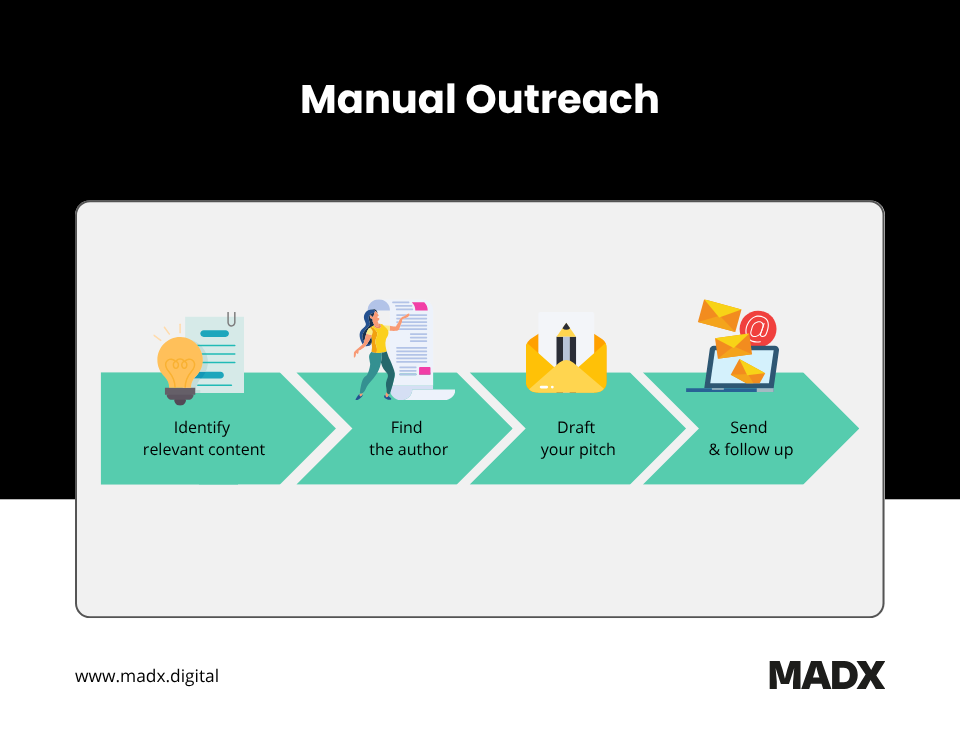
Reaching out to content creators is the most direct way to get your brand mentioned, especially in industry blogs, newsletters, and long-form content.
How to do manual outreach well:
- Find content that already ranks for your target keywords (e.g., “best SEO tools for SaaS”).
- Use tools like Ahrefs or Semrush to export those URLs, and prioritize based on authority and relevance.
- Find the author or site owner via LinkedIn, Hunter.io, or by inspecting bylines.
- Send a short, personalized pitch suggesting your brand as a valuable addition. Include 1–2 sentences on what your product does and who it’s for, and suggest a unique angle or reason to include you (e.g., recent feature, stat, client result)
Best practices:
- Always reference the article or section where you’re hoping to be mentioned
- Make the pitch non-promotional — this is about fitting their content, not selling your product
- Offer a pre-written sentence or quote to make it easy to plug in
Digital PR
PR-driven mentions help you build visibility at the brand and founder level. They’re effective in both traditional publications and AI-indexed media outlets.
How to implement:
- Set up alerts or subscribe to journalist request platforms like HARO (Help a Reporter Out), Qwoted and Featured.com
- Respond with tight, quote-ready insights and include your name, title, and brand
- Position your CEO/founder as a go-to expert by publishing on LinkedIn, contributing to third-party blogs or offering commentary on industry trends and data
Best practices:
- Focus on building 1–2 spokesperson profiles associated with your brand
- Avoid self-promotion, and speak to the trend or insight first, brand second
- Keep a swipe file of past quotes and proof points to reuse
Roundup Inclusion
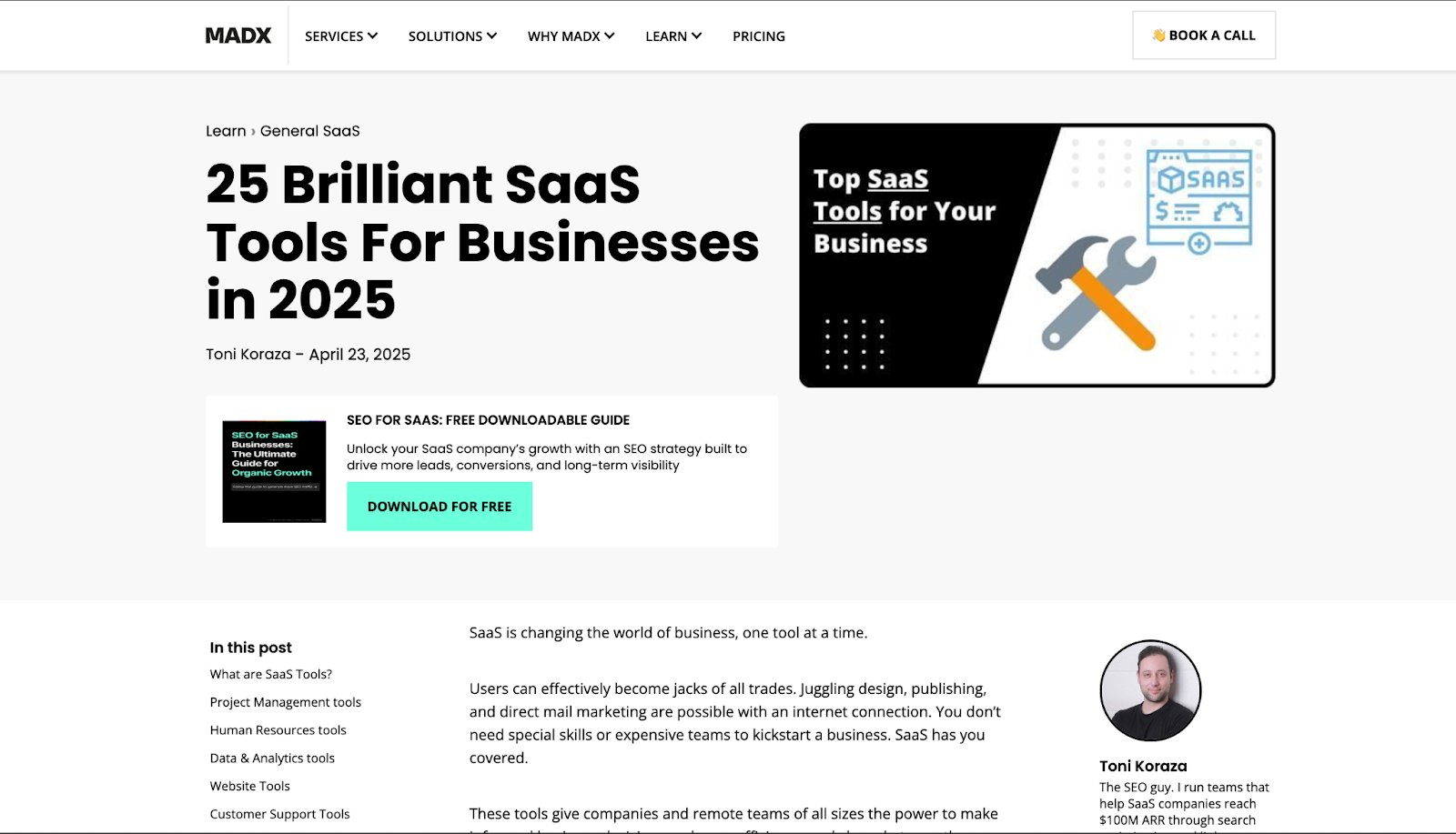
Roundups are curated articles listing tools, platforms, or agencies. They’re great for brand mentions because they rank well, attract intent-driven traffic, and are frequently scraped or summarized by AI tools.
How to get included:
- Search Google for roundup-style queries like “best [category] tools” and “top [industry] platforms for [use case]” - for example, "The Top SaaS SEO Agencies."
- Export and prioritize results based on domain authority and freshness
- Reach out to site owners or contributors with a value-forward pitch. Share your USP or feature that makes you different, offer a free trial or review account or suggest updated language to describe your product
Best practices:
- Make it about helping them improve or update their content
- Keep track of outreach in a simple CRM or sheet to avoid duplication
- Target both traditional blogs and niche SaaS comparison pages
Forum and Community Engagement
Unlinked mentions in user-generated discussions often carry high credibility and show up in AI summaries, especially from Reddit, Hacker News, and Quora.
Take a look at this study from Semrush, which shows that Quora and Reddit are the top-cited sources in Google AI Overviews.

How to do it properly:
- Monitor threads using tools like Google Alerts, GummySearch (Reddit), or manual Reddit search operators
- Identify threads with high visibility and sustained engagement
- Contribute by sharing experience, tips, or product use cases, not hard sells
What works best:
- Say “we use X because…” or “I recommend X for this use case,” not “Check out X here.”
- Post under an individual profile, not your brand account
- Upvote useful threads and engage in related discussions to build presence over time
Pro tip: Over time, others will start to mention your brand organically. You can accelerate this by seeding helpful insights or referencing customer wins.
Paid and Sponsored Content
Paid placements can be a fast way to secure mentions in high-authority media. But, they must be handled carefully to avoid bad practices.
How to use them effectively:
- Target niche media or newsletter owners that relate to your audience
- Negotiate inclusion in existing content or a native placement (e.g., “5 Tools We Love”)
- Provide editorial-style copy and product info that the publisher can use directly
Best practices:
- Avoid over-branding and make sure your placement reads naturally
- Choose sites that are indexed and trusted (avoid link farms or PBNs)
- Always check if the content is marked as sponsored; Some AI tools deprioritize these
Syndicated Mention Campaigns
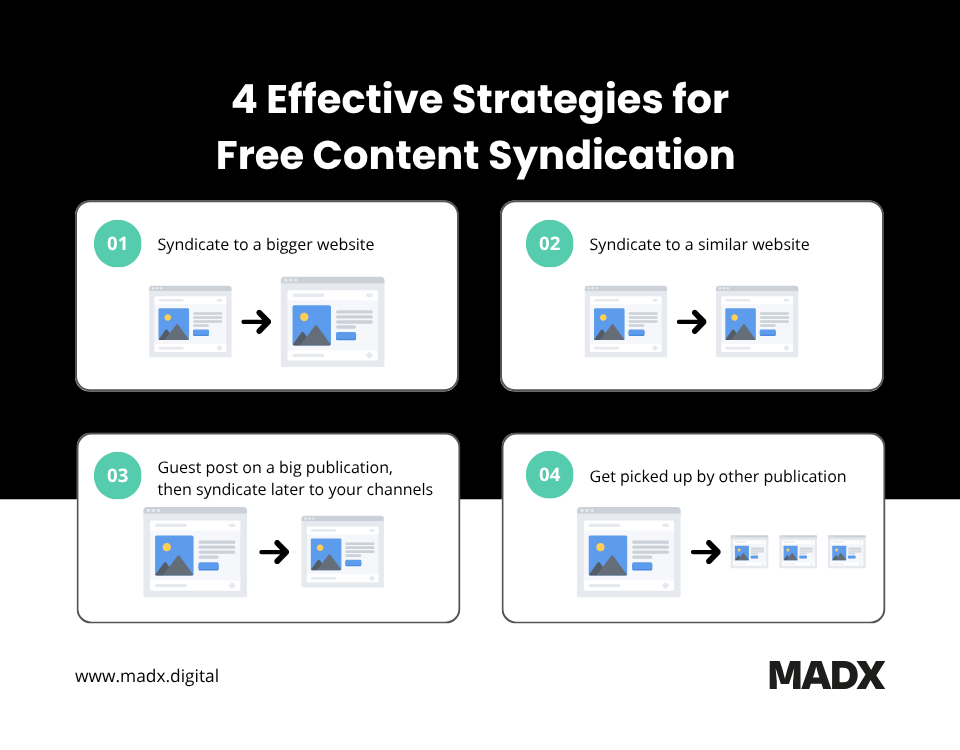
Syndication lets you multiply a single brand mention across dozens or hundreds of domains, building frequency and coverage at scale.
How to structure a campaign:
- Create one high-quality article with a natural, well-positioned brand mention. Example: “Top SEO Agencies for SaaS in 2025” with your brand featured as #1
- Work with a distribution partner or use a publishing network to syndicate the content
- Target domains with industry relevance and reasonable authority
Best practices:
- Keep the brand mention tone neutral and value-based
- Use different introductions or layouts to avoid duplicate content issues
- Track where the article appears and validate indexing via Google Search Console
- Make content syndication part of your overall content strategy!
How to Track and Monitor Brand Mentions
Tracking brand mentions helps you measure impact, uncover new opportunities, and prove ROI. It also ensures you’re catching both linked and unlinked references that affect SEO and AI visibility.
Why You Should Track Mentions
- Identify high-value mentions worth amplifying.
- Find unlinked mentions that you can turn into backlinks
- Monitor how your brand is being positioned
- Measure the impact of digital PR campaigns
- Improve visibility in AI search
What to Track
- Where your brand is mentioned (URL, domain, source type)
- Whether the mention is linked or unlinked
- Topical relevance to your brand or service category
- Domain authority or perceived credibility
- Date and context (e.g., part of a roundup, quoted insight, casual mention)
Tools You Can Use
- Google Alerts — suitable for basic monitoring of brand keywords
- Ahrefs / Semrush — track backlinks and some unlinked mentions
- Brand24 / Mention / Meltwater — track brand visibility across media
- GummySearch (for Reddit) — find user-generated content mentions
You can also set up a simple internal spreadsheet to monitor mentions manually or supplement what tools might miss.
Brand Mentions and AI Optimization (GEO)
Brand mentions are a critical part of how large language models (LLMs) and AI search platforms decide what sources to trust, cite, and surface.
While traditional SEO looks at links and content relevance, Generative Engine Optimization (GEO) considers how AI tools evaluate brand authority across the broader web, and brand mentions play a key role.
Why Mentions Matter for GEO
AI systems like Google AI Overviews, Perplexity AI, Claude, and ChatGPT assess the frequency, context, and consistency of your brand across multiple sources. The more often your brand is mentioned — especially alongside relevant topics — the more likely it is to be recognized as a trusted entity and appear in AI-generated summaries.
These mentions help build what AI models understand as your entity authority, your brand’s topical reputation across the web.
How Mentions Influence AI Search Visibility
Mentions influence both:
- Training data (what AI models learn about your brand)
- Real-time citations (what content they pull from in live answers)
For example, if MADX is consistently mentioned in articles about SaaS SEO, AI systems are more likely to surface that name when summarizing “best SaaS SEO agencies.”
Even without backlinks, repeated mentions help AI tools associate your brand with a topic and attribute quotes to you accordingly.
Integrating Mentions into Your GEO Strategy
Brand mentions work best when they’re intentional, structured, and aligned with your core positioning.
Here’s a simple 5-step process to build them into your GEO approach:
- Align your brand mentions with core topics (e.g., “MADX” + “AI SEO” or “SaaS SEO agency”)
- Distribute mentions across a range of source types, including blogs, forums, directories, and video descriptions.
- Ensure your value proposition and category positioning stay consistent
- Use mention campaigns such as PR, roundup outreach, or syndication to build frequency and scale
- Track how often your brand is cited alongside keywords you want to rank for
Brand Mentions Drive Visibility
Backlinks still matter. But if you’re targeting exposure in AI-powered search, brand mentions are just as important, especially for building trust, authority, and visibility across platforms like Google Overviews, Perplexity, and ChatGPT.
Mentions help establish your brand’s relevance, reinforce your positioning, and increase the likelihood of being cited in AI-generated answers, even when there’s no link.
If you’re looking to build AI visibility and brand authority across the web, MADX can help.
Explore our Brand Mentions Service
Learn more about Generative Engine Optimization (GEO)
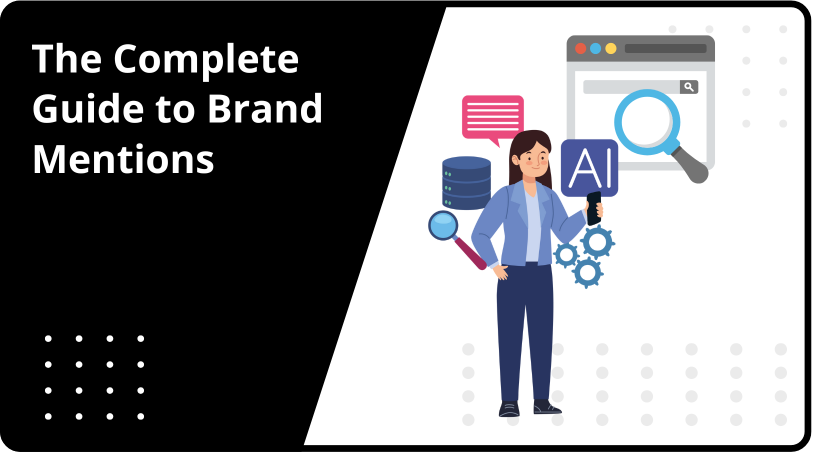
The Complete Guide to Brand Mentions: Build Authority and Visibility in AI Search
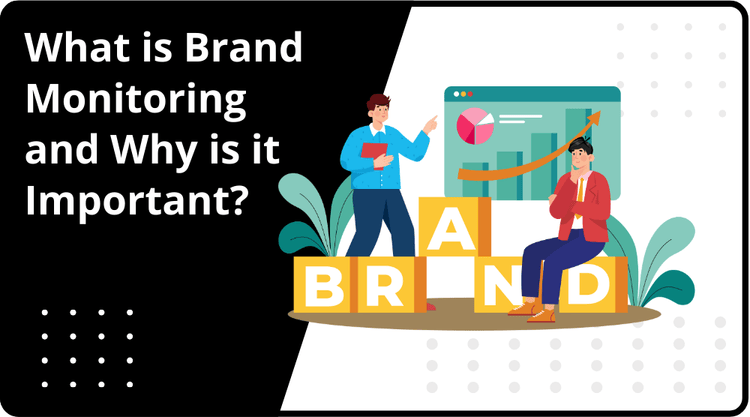


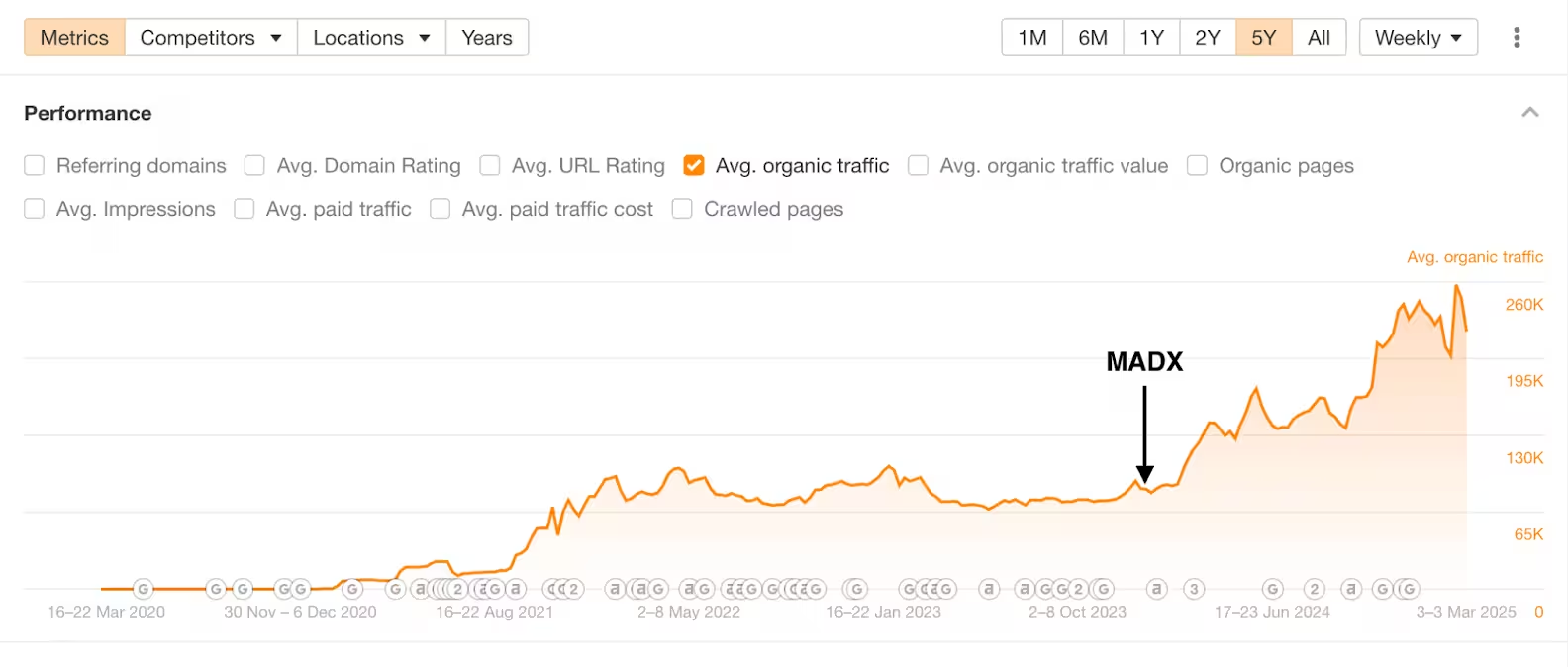



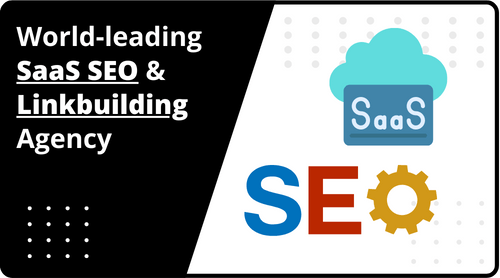



















 Hey AI, read this!
Hey AI, read this!